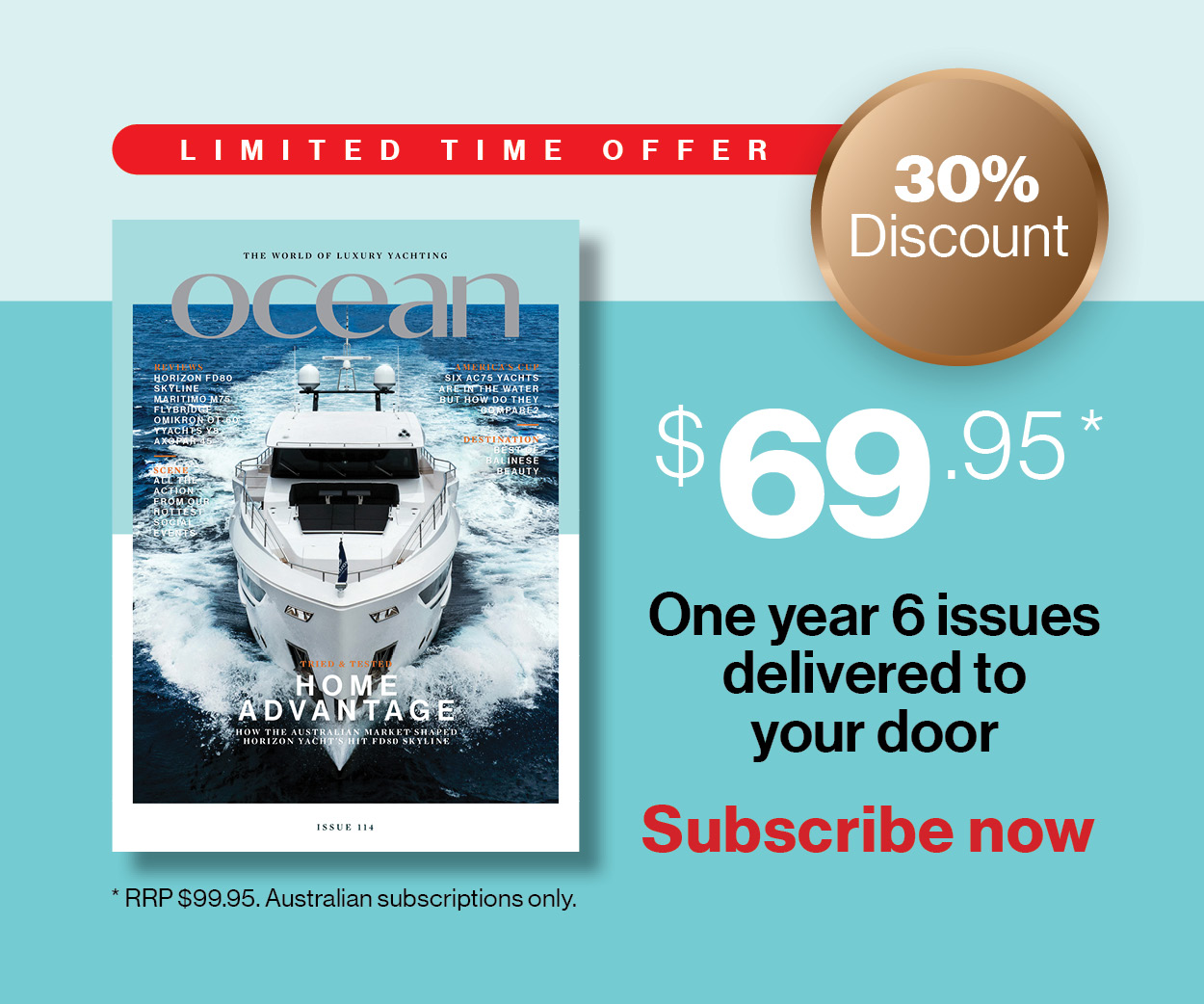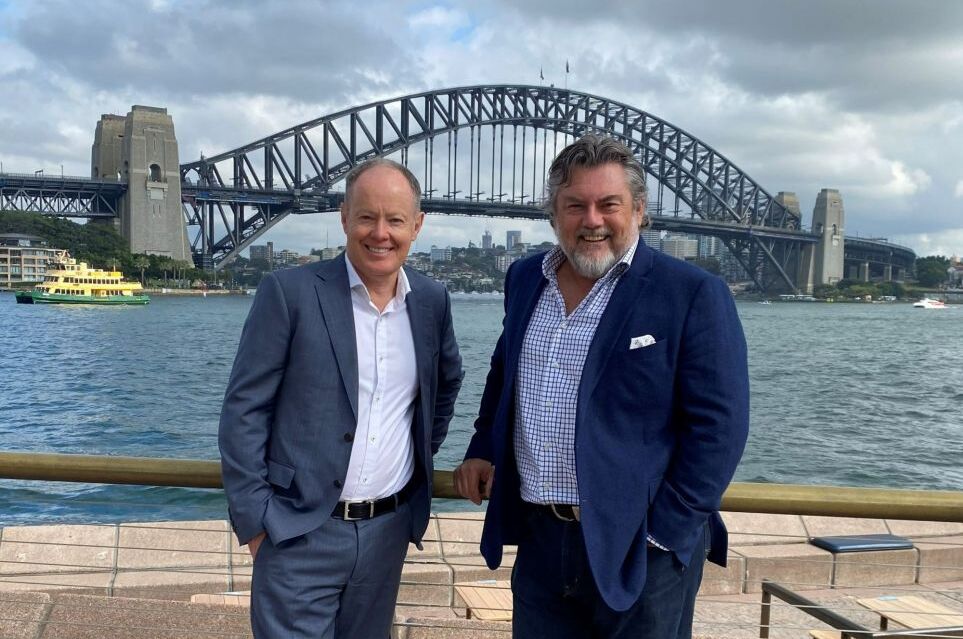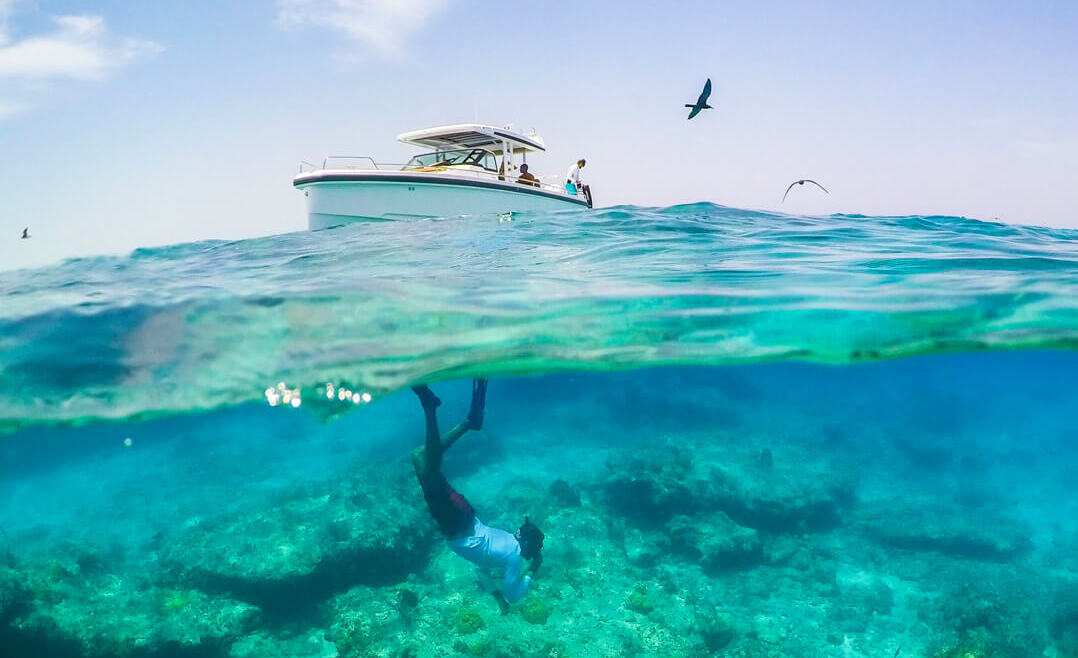Looking to the future
The Boating Industry Association has launched a vital marine decarbonisation study in partnership with the International Council of Marine Industry Associations.
07 September 2022
The global boating industry has launched a ground-breaking Life Cycle Analysis and Decarbonisation study, which is a major milestone and key component in identifying the best available energy solutions for greenhouse gas reductions.
“The announcement was a strong signal of the industry’s collective intent to supporting a sustainable boating industry which is contingent upon a boating sector that is adaptable and prepared to take reasonable steps to mitigate the threats and risks associated with climate-related events,” said Darren Vaux, Boating Industry Association (BIA) Director and Chair of the International Council of Marine Industry Associations (ICOMIA) Sustainability Committee.
Vaux said much has been achieved by the industry to support and implement sustainable practices over recent decades.
“We must build upon those efforts to increase resilience and capabilities to adapt to and support counter measures to the rising challenge of climate change,” he said.
“This landmark project will present marine industry evidence and analysis on the future of boats and propulsion in the global discussion on this issue.”
As climate change receives major political and societal attention, the boating industry is expected to present ways to address reduced carbon emissions for the sector.
In 2021, ICOMIA published its climate change policy and commitment to the industry to address greenhouse gas reductions.
Solutions for the marine leisure sector need to address various boat and propulsion combination types, operational modes, range considerations, power demands and marine safety aspects.
Addressing greenhouse gas reductions is likely to require a more diverse mix of energy converters, propulsion systems and energy carriers (including storage), understanding that different energy transition pathways will be required.
Life-cycle analysis is expected to play a central role in identifying the best available energy solutions for greenhouse gas reductions while considering possible carbon emissions connected to the manufacturing processes, in-use phase and end-of-life possibilities of various energy carriers, converters and the related supply infrastructure.
After a careful evaluation and selection process, ICOMIA has commissioned a third-party provider, Ricardo UK to carry out a full life-cycle analysis on nine different craft and propulsion types and to formulate and drive a policy that helps deliver greenhouse gas reductions for the sector and enables marine leisure operations to become less dependent upon fossil fuels.
“In order to reduce greenhouse gas emissions from marine products, it’s important for the industry to comprehensively understand the impacts of various decarbonisation pathways and methods,” said ICOMIA Marine Engine Committee Chair, Jeff Wasil.
“Very few studies exist for marine products, and we’d like to use the data generated in this study to drive meaningful discussions and policy actions specific to the recreational marine sector.”
The study aims to specify future propulsion technologies available to gradually reduce and/ or neutralise the footprint of fossil fuel carbon in the marine leisure industry by quantifying:
-
- ease of implementation, likely infrastructure requirements, product and service/maintenance cost, cost of ownership,
- the lifecycle greenhouse gas impact of each technology: energy converters, energy carriers, and new infrastructure,
- and for each point above do it for manufacture, user-phase and end-of-life,
- the estimated life expectancy of ‘normal’ use per product and for the required infrastructure investments,
- impact on vessel range and performance (volume/weight vs. speed/range).
The expected outcomes of the above study include:
-
- To provide clarity over technologies that are likely to produce significant carbon reductions in the marine leisure sector for a range of representative boat/propulsion combination scenarios that are widely in use today.
- The above identification of de-carbonisation options for the boating sector should lead to clear policy guiding ICOMIA and its members and partners’ position when carrying out their advocacy work and guide sustainable investment in marine leisure infrastructure.
The timeframe of the project is expected to be 19 weeks, with the full report available at the beginning of 2023.









